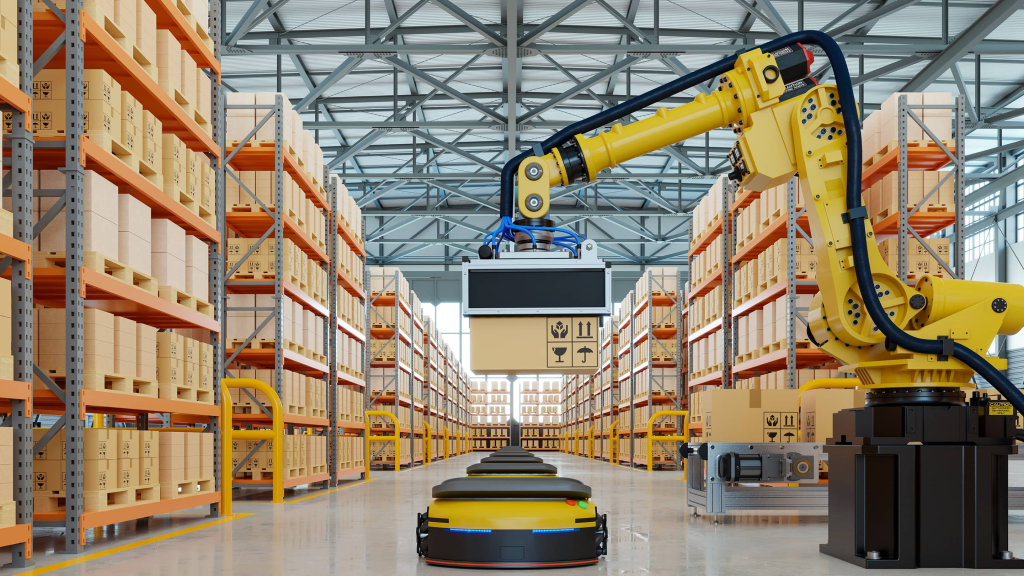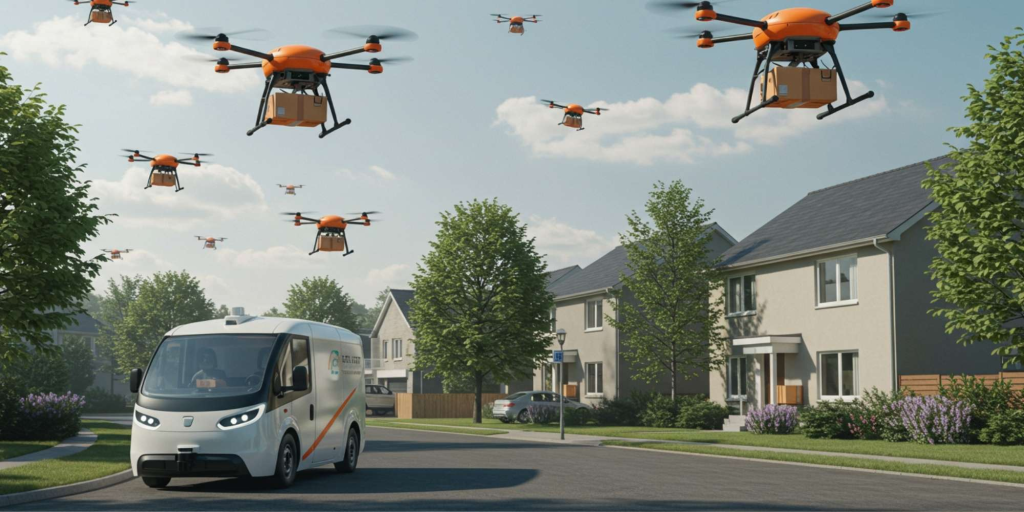Advanced Tracking Systems Shaping Future Logistics
For businesses, real-time tracking is no longer a luxury—it’s a necessity. Companies that fail to adopt modern logistics solutions risk falling behind competitors who leverage data-driven insights to optimize carrier management, inventory control, and last-mile delivery.
This article explores how advanced tracking systems are shaping the future of logistics, the benefits they bring to e-commerce and global trade, and how Postalparcel’s logistics services help businesses stay ahead in an increasingly competitive market.

The Role of Advanced Tracking in Modern Logistics
1. Real-Time Visibility for Smarter Decision-Making
Traditional logistics often suffers from blind spots—shipments get delayed, inventory mismatches occur, and customers are left in the dark. Advanced tracking systems eliminate these inefficiencies by providing:
- Live shipment updates from the warehouse to the doorstep.
- Predictive analytics to foresee delays and reroute shipments.
- Automated alerts for exceptions like customs holds or weather disruptions.
Businesses using Postalparcel’s logistics services gain access to these capabilities, ensuring smoother operations and higher customer satisfaction.
2. Optimizing Carrier Management & Delivery Services

Not all carriers perform equally across different regions. A multi-carrier approach, powered by real-time tracking, allows businesses to:
- Compare performance metrics (delivery times, cost, reliability).
- Dynamically switch carriers based on real-time conditions.
- Reduce failed deliveries with accurate ETAs and geofencing notifications.
Unlike rigid logistics systems, Postalparcel’s service offers flexibility, enabling businesses to adapt quickly to changing market demands.
3. Enhancing Inventory & Order Management
Stock accuracy is critical for e-commerce success. With IoT-enabled tracking and RFID technology, businesses can:
- Monitor stock levels in real time, preventing overstocking or stockouts.
- Automate replenishment based on demand forecasts.
- Sync orders across multiple sales channels for seamless fulfillment.
A great example is a German electronics retailer that struggled with cross-border shipping inefficiencies before partnering with Postalparcel. By integrating their inventory and order management services, the retailer reduced stock discrepancies by 30% and improved delivery times by 25%, all while cutting logistics costs.
Key Technologies Driving the Future of Logistics
1. AI & Machine Learning for Predictive Logistics

Artificial intelligence analyzes historical data to:
- Predict demand spikes and adjust inventory accordingly.
- Optimize delivery routes to minimize fuel costs and delays.
- Detect potential disruptions before they impact shipments.
2. Blockchain for Secure & Transparent Supply Chains
Blockchain ensures:
- Tamper-proof shipment records reduce fraud.
- Faster customs clearance with digitized documentation.
- End-to-end traceability for high-value or regulated goods.
3. Autonomous Vehicles & Drones for Faster Deliveries
Companies like Amazon and UPS are testing:
- Self-driving trucks for long-haul freight.
- Drone deliveries for remote or urgent shipments.
These innovations will soon become mainstream, further reducing delivery times and costs.

Challenges & Solutions in Implementing Advanced Tracking
1. Data Overload & Integration Issues
Many businesses struggle with disparate tracking systems that don’t communicate. The solution?
- Unified logistics platforms that consolidate data from multiple carriers.
- API integrations with ERP and e-commerce systems.
2. High Implementation Costs
Smaller businesses may hesitate due to budget constraints. However, logistics-as-a-service models, like those offered by Postalparcel, provide scalable solutions without heavy upfront investments.
3. Privacy & Security Concerns
With increased tracking comes data vulnerability. Best practices include:
- Encrypted tracking systems to protect customer information.
- Compliance with GDPR and other regulations.

How Businesses Can Prepare for the Future
- Adopt a Multi-Carrier Strategy – Don’t rely on a single provider; diversify for resilience.
- Invest in IoT & Automation – Smart warehouses and AI-driven logistics reduce human error.
- Partner with Agile Logistics Providers – Services like Postalparcel’s carrier management and delivery solutions ensure scalability and adaptability.
Conclusion
The future of logistics lies in advanced tracking systems, AI-driven optimization, and seamless integration across supply chains. Businesses that embrace these technologies will enjoy faster deliveries, lower costs, and happier customers.
Postalparcel‘s logistics services exemplify this shift, offering real-time tracking, dynamic carrier management, and efficient order fulfillment, without the complexity of rigid systems. As the industry evolves, companies that prioritize visibility and agility will lead the way.
Industry Insights
news via inbox
Nulla turp dis cursus. Integer liberos euismod pretium faucibua







